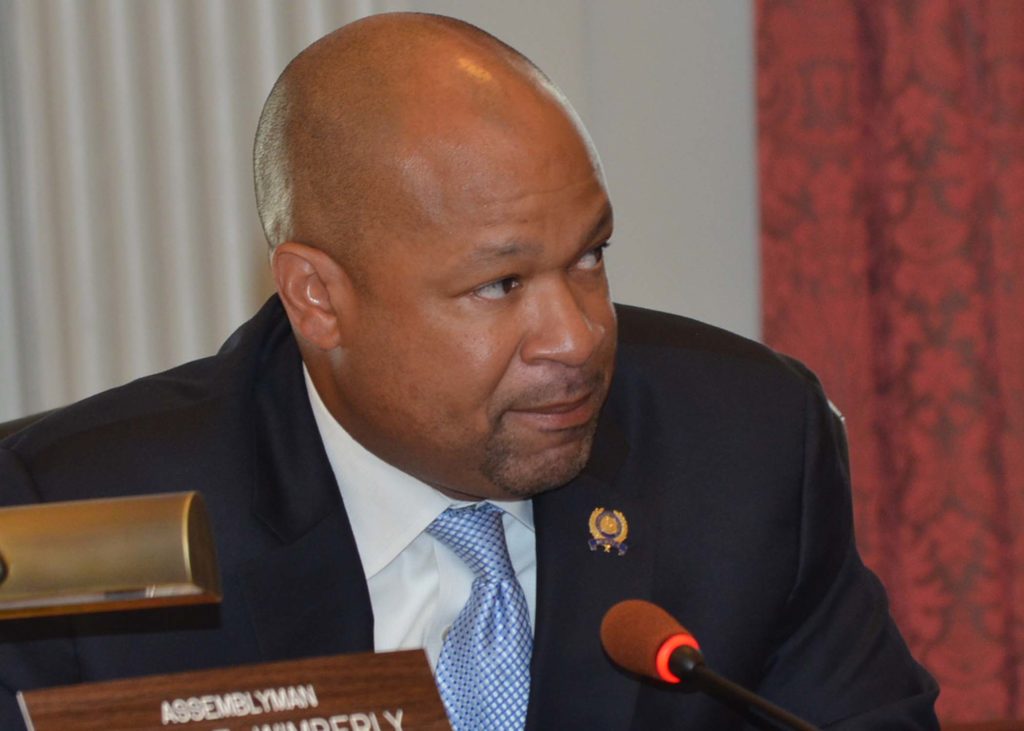A Dream Deferred

The right to life, liberty and the pursuit of happiness has been nothing but a distant dream for many, but more unjustly for Black males in America. Dr. Martin Luther King Jr. had a dream to end racism and the cultural divide in this country. In the year 2020, I’ll add to that the hopes that systemic genocide we’ve see in the African American community will cease.
The combination of the rise in mass incarceration, voter disenfranchisement, unequal educational opportunities, disparate healthcare practices, job and housing discriminations, police brutality and an unequal justice system has waged a decades-long war on their futures. Along with segregation and inequality, it all adds up to the slow genocide of a people.
As a Black father of four sons, I’m determined to keep them safe and prepared for all they may come across out in the world. I find myself going over guiding points. “Always stay calm and comply with your hands up if a cop stops you. You have to outwork everybody. People are going to judge you because of the color of your skin. People are expecting you to live up to certain stereotypes, deny them.”
Although I have these discussions with my sons and the young men that I coach, I’m dismayed because, sometimes, this isn’t enough. Even if they work hard and do the right thing, these young men are still more susceptible to dying from police brutality, being falsely accused or wrongfully incarcerated and subjected to long-term unemployment.
In 2015, after the death of Michael Brown, a Guardian study reported 1,134 Black males were killed in police shootings in that year alone. Repeatedly, we have witnessed senseless violence. Among the most tragic, Eric Garner (2014), Trayvon Martin (2012), Freddy Gray (2015), and Tamir Rice (2014). We’ve also seen something similar at various time throughout history, which not many notice at first glance. Emmett Till (1955), George Stinney (1944), and Willie Francis (1947). This is not something that just began; this has happened for centuries.
The dark reality is that racism and segregation still exist in America. We see it today in education in affordable housing and healthcare- underscored in the maternal healthcare disparities affecting black women—and in the justice system.
New Jersey’s public schools are among the nation’s most segregated. Many students are attending schools that are racially disproportioned. For students of color, this has historically meant a lack of resources, little funding and learning in degrading school buildings without access to 20th Century technical upgrades.
In these conditions, students, especially African American males, do not excel easily. Low retention rates and high expectations lead to higher chances of them joining gangs, selling drugs, dying, and being incarcerated. This is the endless cycle of the school-to-prison pipeline.
We also see the disparities in today’s criminal justice system. Black males charged with possession of marijuana serve a longer term than their white counterparts. Not to mention the countless amount of wrongly convicted men who are still serving time, or have spent years of their life behind bars for a crime they did not commit. The exoneration of Steve Lopez, Antron McCray, Kevin Richardson, Yusef Salaam, Raymond Santana, and Korey Wise, the “Exonerated 5”, is an example told in the movie “When They See Us.”
Ben Krump, author of ‘Open Season” writes “One of every three Black males born today can expect to spend some of his life in prison. For Latino males, one in six. For white males, one in seventeen.” 50 percent are more likely to be innocent when convicted of murder than other convicted murderers.
Mass incarceration is a form of voter suppression. The formerly incarcerated can’t vote, are unemployed, and denied housing because of their criminal records. What do we know? The school-to-prison pipeline extends beyond jail cells and into their futures.
You’ve heard of the Rooney’s rule. It’s an NFL policy that is supposed to provide for hiring of head coaches, and staffers of color. Only three African-Americans were head coaches in the NFL when the rule was adopted in 2003. The NFL still only has three today.
I say this for a reason. We have to take greater steps to change the status quo for all and in all things. It may be a different year, yet when we review the circumstances of our times, not much as altered since Dr. Martin Luther King shared his dream.
By Assemblyman Benjie E. Wimberly who represents the 35th Legislative District which encompasses parts of Bergen and Passaic Counties.





